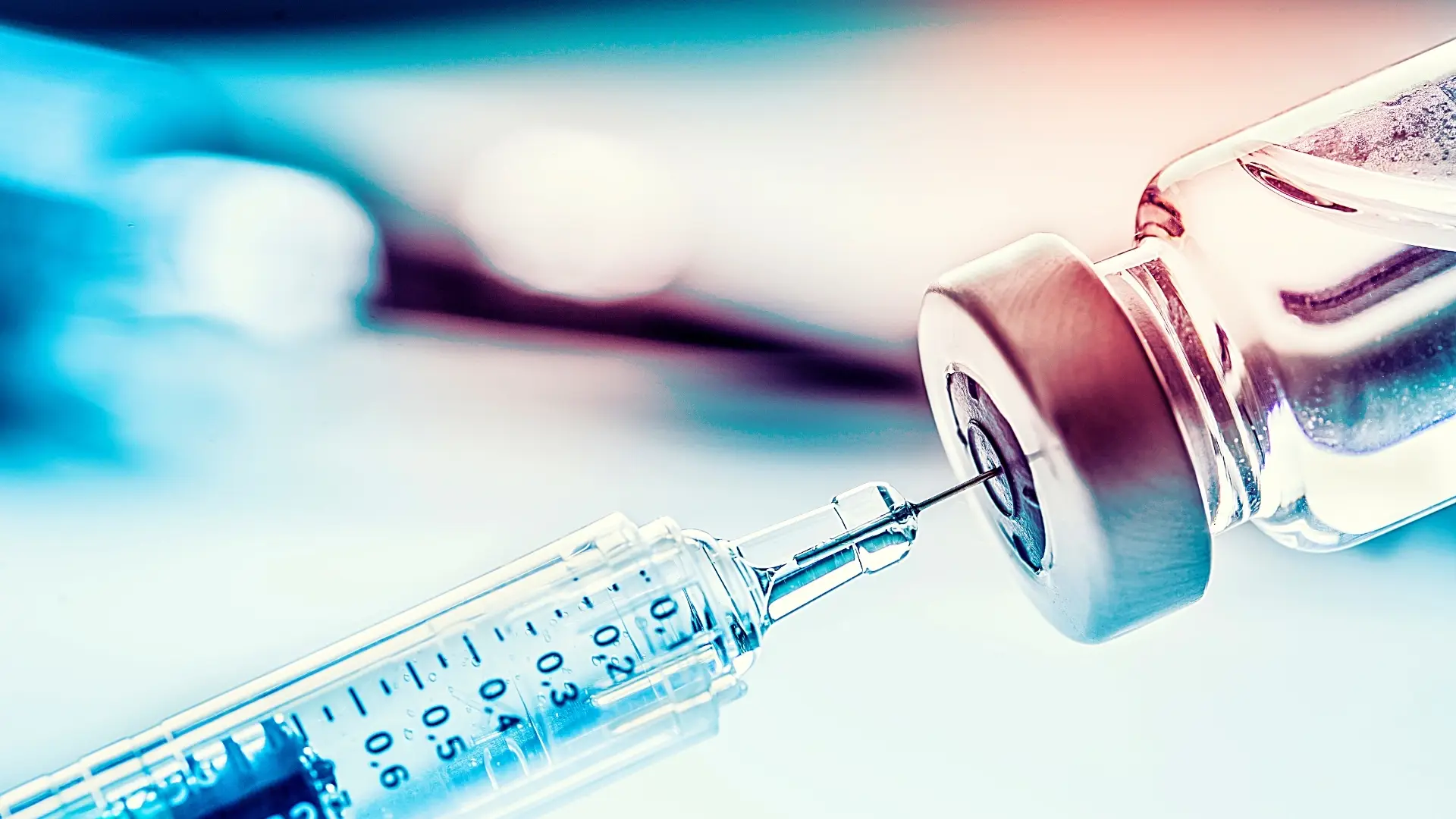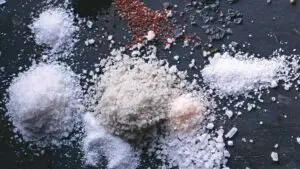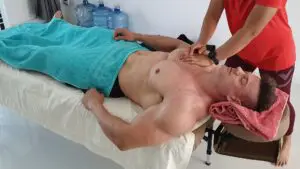C-Reactive Protein & Carrier Oils Within Pharmaceuticals
C-Reactive Protein (CRP) is a ring-shaped serum protein whose concentrations rise in response to inflammation. Currently, it’s considered as the key bio-marker of local and systemic inflammation. CRP is mainly produced in the liver in response to inflammation and tissue damage, but it can also be produced locally by other tissues, such as arterial tissue, lungs, and kidneys. CRP plays a key role in the body’s defense mechanism against infection. CRP binds the cell surface of many pathogenic microbes, thereby activating the innate immune system. It also binds to dead or dying cells, these microbes and cells are then ready to be devoured by white blood cells.
Watch or Listen to this Articles YouTube Video
Chronically elevated CRP concentrations in the bloodstream have a negative effect on health, increases in CRP are part of the biological response to chronic stress and are associated with smoking and the development of Type 2 Diabetes or other glucose disorders. CRP is positively correlated with BMI, blood pressure, serum triglycerides, cholesterol, LDL cholesterol, blood glucose, and fasting insulin concentrations. While CRP is inversely correlated with HDL cholesterol and insulin sensitivity.
Studies show a statistically significant association of CRP with the onset of Cardiovascular Disease (CVD) and suggest that CRP levels can predict future cardiovascular risk in otherwise healthy men and women. When both CRP and total cholesterol levels are high and High-Density Lipoprotein (HDL) & Low-Density Lipoprotein (LDL) ratios are skewed, a person’s overall risk of developing CVD or a CV event increases up to 9-fold compared with that of a person with low CRP and healthy cholesterol levels. Similarly, increased levels of LDL cholesterol in patients with cardiovascular disease cause blood vessels to express more CRP, which may, in turn, promote the uptake of LDL foam cells into the blood vessel cells, worsening CVD. In healthy subjects, CRP can predict myocardial infarction mortality, peripheral blood vessel disease, heart failure, and arrhythmia, including sudden heart death.
To accurately measure your CRP levels, you need to do the high-sensitivity C-reactive protein (hs;CRP) test, not a conventional CRP test. The CRP test is ordered for people with symptoms of a serious bacterial infection or chronic inflammatory disease. It measures CRP in the range from 10 to 1000 mg/L, while hs;CRP test measures CRP in the range from 0 mg/L and beyond.
Normal hs;CRP levels vary between populations, with mean values from below 1.0 up to 3.0 mg/L. Elevated levels of hs;CRP (>3 mg/L) are associated with cardiovascular event risk and the risk of developing cardiovascular disease is quantified as follows:
• Low Risk; under 1.0 mg/L.
• Average Risk; between 1.0 and 3.0 mg/L.
• High Risk; above 3.0 mg/L.
• Very High Risk; 5-10 mg/L.
• Above 10 mg/L; Clinically significant inflammatory states.
CRP has a constant half-life of 18-19 hours under all conditions of health and disease, so the sole determinant of circulating CRP concentration is the production rate. Upon cessation of production within the liver or other tissues of the body, a hs;CRP blood work result of 10mg/L should fall below 1.0mg/L within approximately 64 hours.
Causes Of Elevated hs;CRP Concentrations
• Obstructive Sleep Apnea (OSA)
• Rheumatoid Arthritis (RA)
• Diet containing high amounts of Saturated Fatty Acids and Trans Fats
• Vitamin A, C, D & K Deficiency
• Stress & Socioeconomic Factors
• Substance Abuse (Smoking/Nicotine, Alcohol)
• High Altitude resulting in Hypoxia/Altitude Sickness
• Extreme Cold
• High Serum Leptin Levels in Obese Individuals
• Birth Control or other Oral Estrogen Therapies
• Cytokines IL- 6, IL-1β, IL-17 & TNF-α; produced in response to thrombin, UV-light, neuro-peptides, bacterial components & steroid hormones.
• Injecting Non-USP Synthetic Chemical Solvents used by Under Ground Steroid Labs as Carrier Oils; Ethyl Oleate (EO), Polyethylene Glycol (PEG), Ethylene Glycol (MEG), Propylene Glycol (PG) & Guaiacol.
Methods to Decrease CRP Concentrations
• Regular Exercise; including Yoga, Tai Chi, Qigong, Meditation & Sexual Activity.
• Weight Loss
• Balanced Diet high in Polyunsaturated & Omega-3 fatty acids
• Alcohol; moderate red wine consumption is associated with decreasing CRP levels.
• Coffee & Green Tea
• CBD Oils & Cannabis; when consumed other than smoking.
• Vitamin; A, C, D, E, B3 (Niacin), B9 (Folate) & K Sufficiency.
• Mineral; Selenium, Magnesium, Chromium, Calcium, Sufficiency.
• Supplements; Resveratrol, Curcumin Extract, Fish Oil, L-Carnitine, Coenzyme Q10 / Ubiquinol, Soluble Fiber & Probiotics, Milk Thistle, Pomegranate Extract, Aged Garlic Extract.
• Medication; Aspirin, Statins & ACE Inhibitors.
Dynamic Viscosity Rating
The carrier oil used within a particular pharmaceutical grade product plays a major contributing factor in the efficacy, the half-life, and active-life. The dynamic viscosity rating of the carrier oil appears to impact the half-life more than whether the carrier oil is organic or synthetic. The viscosity of the carrier oil impacts how readily the esterified Anabolic-Androgenic Steroid (AAS) leaves the injection depot after administration. Generally speaking; the lower the dynamic viscosity rating, the easier the pro-drug compounds can leave the depot and the faster the esterases & hydrolysate enzymes can start cleaving off the carbon atoms that comprise the ester. Organic Carrier Oils used by FDA complaint pharmaceutical companies do not raise CRP concentrations significantly, if at all.
Even if the Active Pharmaceutical Ingredient (API) or pro-drug compound is exactly the same, the difference of viscosity between carrier oils could effectively lower the half-life of the compound by hours or even days. While simultaneously raising the risk for aromatization or 5-alpha reductase activity, as serum concentrations rise and peak rapidly following the administration. These hormonal fluctuations could also contribute to acne and other undesired side-effects, although they might be resolved with daily micro-injections to stabilize serum concentrations that way.
Below are the (known) Dynamic Viscosity Ratings (mPa.s) for each commonly used carrier oil at room temperature (around 23.5 Celsius / 74 Fahrenheit):
• Castor Oil; 297.0 (Extending the Half-Life of Enanthate, Undecanoate & Keto-Laurate Ester to 33.9 Days)
• Crambe Oil; 53.6
• High Oleic Safflower Oil; 41.2
• Olive Oil; 40
• Peanut / Arachis Oil; 39.6
• Sunflower Oil; 37.1
• Grapeseed Oil; 37.0
• Sesame Oil; 35.3
• Corn Oil; 34.9
• Cottonseed Oil; 33.5
• Soybean Oil; 32.6
• Safflower Oil; 31.3
• MCT Oil; unknown
• Benzyl Benzoate; unknown (solvent, not a Carrier Oil).
• Benzyl Alcohol; unknown (added for Sterility Purposes, not a Carrier Oil).
• Ethyl Oleate; unknown (solvent, not a Carrier Oil).
• Propylene Glycol; unknown (solvent, not a Carrier Oil).
• Miglyol 812 / 820 / 840; unknown (solvent, not a Carrier Oil).
• Guaiacol; unknown (solvent, not a Carrier Oil).
The dynamic viscosity rating of carrier oils is altered when it’s combined with the Active Pharmaceutical Ingredients or pro-drug compounds, solvents & preservatives. Changes in temperature also affect the viscosity; warming the carrier oil to body temperature of around 37 Celsius / 98.6 Fahrenheit, will improve the viscosity and allow for a smoother & easier injection compared to administering products at room temperature.
You can easily tell the difference between organic carrier oils and synthetic carrier oils from the Viscosity. Synthetic solvents are very thin and easy to inject, and to suspend Steroid Raws in; they smell very chemical as well! An early assessment to see if the carrier oil is synthetic or not, is with a simple experiment; use a little bit of the oil and try to rub the ml/iu indicators of a syringe. It shouldn’t take long for the ink to come off and streak all over the syringe. This is what you’re injecting… Keep in mind that Arachis Oil won’t rub the ink of a syringe, but might still cause systemic inflammation, while MCT or Coconut Oil, does rub the ink of a syringe and doesn’t raise CRP concentrations in the bloodstream.
Side effects like “Test-Flu” do not come from Testosterone, it comes from your body’s adverse reaction to the synthetic solvent. Coach Steve has even heard people say they felt dizzy and unable to focus for weeks on end while they were using UGLs that produce with synthetic carrier oils. Not to mention the risk of injecting heavy metals from poorly produced RAWs, infection risk, underdosing, mislabeling the Active Pharmaceutical Ingredient (API) when choosing to use UGL over pharmgrade!
Unfortunately, there is no pharmgrade Trenbolone, Masteron, Boldenone, etc. available. If you can find a UGL that produces with Organic Carrier Oils like Cottonseed, Grapeseed, or Safflower Oil, without secretly mixing Ethyl Oleate to increase solvency and keep the RAWs into solution.
Organic carrier oils are much thicker, take longer to inject, metabolize and absorb at a steady rate, often matching the half-Life of the steroid ester(s) within. Although some pharmaceuticals contain a relatively higher concentration of Benzyl Benzoate (up to 35%), which doesn’t cause systemic inflammation.
Otherwise limit Synthetic Solvent use to 4-6 weeks Pre-Contest ONLY!
USP Pharmaceutical Grade Testosterone or derivates should always be the Primary Injectable(s) of choice! Always check you hs;CRP levels when using a ANY brand! It’s not Pharmgrade if hs;CRP goes over 1.0mg/L!
Organic Carrier Oils within Pharmaceutical Grade Steroid Formulations
Below is a list of all prescription-based commercially available pharmaceutical-grade Anabolic-Androgen Steroids (AAS) in FDA Approved carrier oils, the country of the head office is also listed, although the oil-based AAS might not be produced in the same country.
Castor Oil
• Bayer (Germany); Testoviron Depot (Testosterone Enanthate), Primoteston Depot (Testosterone Enanthate), Rimobolan (Methenolone Enanthate/Primobolan) & Nebido (Testosterone Undecanoate).
• Endo Pharmaceuticals (American-Irish); Nebido (Testosterone Undecanoate).
• Norma Hellas S.A. (Greece); Testosterone Enanthate.
• Rotex Medica (Germany); Testosterone Enanthate.
Cottonseed Oil
• Actavis (USA); Testosterone Cypionate.
• American Regent (USA); Testosterone Cypionate.
• CIPLA Pharmaceuticals (India); Testosterone Cypionate.
• Padlock Laboratories / Perrigo (USA); Testosterone Cypionate.
• Pfizer / Hospira (USA); Testosterone Cypionate.
• Pfizer / Pharmacia and Upjohn (USA); Depo-Testosterone (Testosterone Enanthate).
• Rising Pharmaceuticals (USA); Testosterone Cypionate.
• Sun Pharm INDS (USA); Testosterone Cypionate.
• Wilshire Pharmaceuticals (USA); Testosterone Cypionate.
Sesame Oil
• Bausch Health Companies Inc. / Valeant Pharmaceuticals (Canada); Testosterone Cypionate & Deratestyl (Testosterone Enanthate).
• Desma Healthcare / Laboratorio Farmaceutico SIT (Italy); Testovis (Testosterone Propionate), Testex (Testosterone Propionate) & Testex Prolongatum (Testosterone Cypionate).
• Hikma Farmaceutica / West-Ward Pharmaceuticals (UK); Testosterone Enanthate & Testosterone Cypionate.
• Watson Laboratories / Allergan PLC (USA); Testosterone Enanthate & Testosterone Cypionate.
Olive Oil
• Galenika (Serbia); Testosterone Depo (Testosterone Enanthate).
• Q Pharma (Spain); Testex Prolongatum (Testosterone Cypionate) in Ethyl Oleate & Olive Oil. Ethyl Oleate isn’t suitable for long-term use.
Arachis Oil
Arachis oil, refined peanut oil is used by a few pharmaceutical companies but might still lead to an adverse reaction and cause (tremendous) systemic inflammation in some users. It doesn’t mean the individual has a peanut allergy, but the body still responds in a negative way by increasing C-Reactive Protein concentrations in the bloodstream. Coach Steve implores you to avoid pharmaceutical-grade products that are produced with Arachis oil as there are plenty of alternatives available. There’s no longer a need to experiment and see if you get an adverse reaction or not!
• Aspen Pharmacare (South Africa); Sustanon250 (4 Testosterone Esters) & Deca-Durabolin (Nandrolone Decanoate).
• Jelfa Pharma (Poland); Testosteronum Prolongatum (Testosterone Enanthate)
• Merck Sharp & Dohme (USA); Deca-Durabolin (Nandrolone Decanoate).
• Norma Hellas S.A. (Greece); Nandrolone Decanoate.
• Nexus Pharmaceuticals (USA); Jenasteron (Testosterone Enanthate).
• Organon (Netherlands); Sustanon250 (4 Testosterone Esters) & Deca-Durabolin (Nandrolone Decanoate).
• Searle (India); Testenate-Depot 250 (Testosterone Enanthate).
• Zydus Cadila Healthcare (India); Testoviron Depot (Testosterone Enanthate).
Peach Oil
Currently, there’s no clear consensus if Peach Oil is suitable for long-term use and induces systemic inflammation or not. Coach Steve has seen limited blood work results of individuals using the following 3rd World “Pharmaceutical Grade” manufacturer. Considering it’s commonly known that most pharmaceuticals tend to have counterfeits, it’s hard to say if Peach Oil causes systemic inflammation, or whatever carrier oil is contained within the counterfeits. Please use with caution!
• Balkan Pharmaceuticals (Moldova); Propandrol (Testosterone Propionate), Enandrol (Testosterone Enanthate), Cipandrol (Testosterone Cypionate), Sustandrol (4 Testosterone Esters), Testosterona-U (Testosterone Undecanoate), Fenandrol (Nandrolone Phenyl-Propionate), Decandrol (Nandrolone Decanoate), Parabolan (Trenbolone CycloHexylMethylCarbonate) & Primobol (Methenolone Enanthate).
Synthetic Carrier Oils within Pharmaceutical Grade Steroid Formulations
Ethyl Oleate (EO) oil isn’t FDA Approved in the western world, except in Spain apparently, but used by a few pharmaceutical companies in Asia. EO might also lead to an adverse reaction in some users and raise serum C-Reactive Protein concentrations. If you value your health, please avoid Pharmaceutical Grade products that have been produced with synthetic Ethyl Oleate as there are many alternatives available that don’t induce systemic inflammation.
• March Pharmaceuticals (Thailand); Testosterone Propionate
• T.P. Drugs (Thailand); Testolic (Testosterone Propionate) & Cypionax (Testosterone Cypionate)
• Q Pharma (Spain); Testex Prolongatum (Testosterone Cypionate) in Ethyl Oleate & Olive Oil.
Pharmaceutical Grade Steroid Formulations with Unknown Carrier Oils
Below is a list of commonly used Pharmaceutical Grade steroids produced with currently unknown carrier oils. Please Contact Coach Steve directly if you know which carrier oil(s) are used within these formulations.
• Aburaihan (Iran); Testosterone Enanthate, speculated to contain Sesame Oil.
• Caspian Tamin (Iran); Androne (Testosterone Enanthate) & Nandrodec (Nandrolone Phenyl-Propionate), speculated to contain Sesame Oil.
• Farmak (Ukraine); Testosterone Propionate.
• Geofman Pharmaceuticals (Pakistan); Testosterone Enanthate.
• Leeford Macmillon Pharmaceuticals (India); Testoretard (Testosterone Enanthate) & Retesto (4 Testosterone Esters).
• Unigen Life Sciences (Thailand); Test Prop (Testosterone Propionate), Depo Test (Testosterone Enanthate), Test Comp (4 Testosterone Esters) & Nandro (Nandrolone Decanoate), speculated to contain Ethyl Oleate.
Pharmaceutical Grade Steroid Verification Methods
You can verify Norma Hellas S.A. (Greece) Testosterone Enanthate & Nandrolone Decanoate products with the code that the pharmacy puts on the boxes. Keep in mind that this is a code generated by the Greek pharmacies, not the serial code generated by the manufacturer. You can verify and pharmaceuticals sold in the pharmacies in Greece, using this website:
https://services.eof.gr/labelsearch/index.xhtml?localeCode=el
You can verify your Bayer (Turkey) Rimobolan products with the QR Code that’s printed on the boxes. The Turkish pharmacy app called “İlaç Takip Sistemi (ITS) Mobil” allows you to scan the QR Codes which are mandatory for each pharmaceutical sold in Turkish pharmacies. You can download it on the Google Apps Store here:
https://play.google.com/store/apps/details?id=tr.gov.saglik.itsmobil&hl=en_US&gl=US








